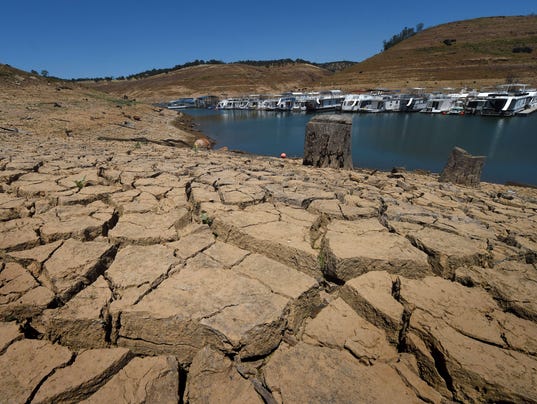 A pair of earthquakes has rattled parts of northern Oklahoma previously shaken by a swarm of earthquakes.
A pair of earthquakes has rattled parts of northern Oklahoma previously shaken by a swarm of earthquakes.
The U.S. Geological Survey says the temblors were recorded Friday in Logan County, the first at 5:38 a.m. about 14 miles northeast of Crescent, located about 35 miles north of Oklahoma City. The magnitude 2.6 quake occurred at a depth of less than two miles
TVNL Comment: This is after two stronger earthquakes earlier last week, and dozens all year. Keep on fracking, Oklahoma. This is the payoff.

 Environmental News Archive
Environmental News Archive



 Thirteen Greenpeace climbers remain suspended below the St. John’s Bridge, blocking the Shell Oil vessel‘s route out of Portland, Oregon, for more than 24 hours. The climbers spent much of yesterday, Tweeting, livestreaming and speaking with journalists, while hanging from the bridge, to urge President Obama to use his last chance to stop Shell’s Arctic oil drilling plans.
Thirteen Greenpeace climbers remain suspended below the St. John’s Bridge, blocking the Shell Oil vessel‘s route out of Portland, Oregon, for more than 24 hours. The climbers spent much of yesterday, Tweeting, livestreaming and speaking with journalists, while hanging from the bridge, to urge President Obama to use his last chance to stop Shell’s Arctic oil drilling plans. California's historic drought appears to be matched by severe dry spells on three other continents. Brazil, North Korea and South Africa are bearing the brunt of much lower-than-average precipitation, wreaking havoc on millions of peoples' lives and livelihoods.
California's historic drought appears to be matched by severe dry spells on three other continents. Brazil, North Korea and South Africa are bearing the brunt of much lower-than-average precipitation, wreaking havoc on millions of peoples' lives and livelihoods. People who live in fracking zones appear to suffer a higher rate of heart conditions and neurological illnesses, according to new research.
People who live in fracking zones appear to suffer a higher rate of heart conditions and neurological illnesses, according to new research. More than 100 children, parents and community organizers in fluorescent yellowish-green shirts and orange shoe covers marched through a South Los Angeles neighborhood earlier this week chanting, “Hey, hey, ho, ho, this drilling site has got to go!”
More than 100 children, parents and community organizers in fluorescent yellowish-green shirts and orange shoe covers marched through a South Los Angeles neighborhood earlier this week chanting, “Hey, hey, ho, ho, this drilling site has got to go!” One of the nation's most recognizable names in climate science, Dr. James Hansen, released a new paper this week warning that even 2 degrees Celsius of global warming may be "highly dangerous" for humanity.
One of the nation's most recognizable names in climate science, Dr. James Hansen, released a new paper this week warning that even 2 degrees Celsius of global warming may be "highly dangerous" for humanity. People living near "unconventional gas and oil drilling" operations were more likely to be hospitalized for heart, nervous system, and other medical conditions than those who were not in proximity to those sites, a new study published Wednesday has found.
People living near "unconventional gas and oil drilling" operations were more likely to be hospitalized for heart, nervous system, and other medical conditions than those who were not in proximity to those sites, a new study published Wednesday has found. The EPA’s internal watchdog recommended Thursday that it improve oversight of the chemicals used in hydraulic fracturing.
The EPA’s internal watchdog recommended Thursday that it improve oversight of the chemicals used in hydraulic fracturing.






























